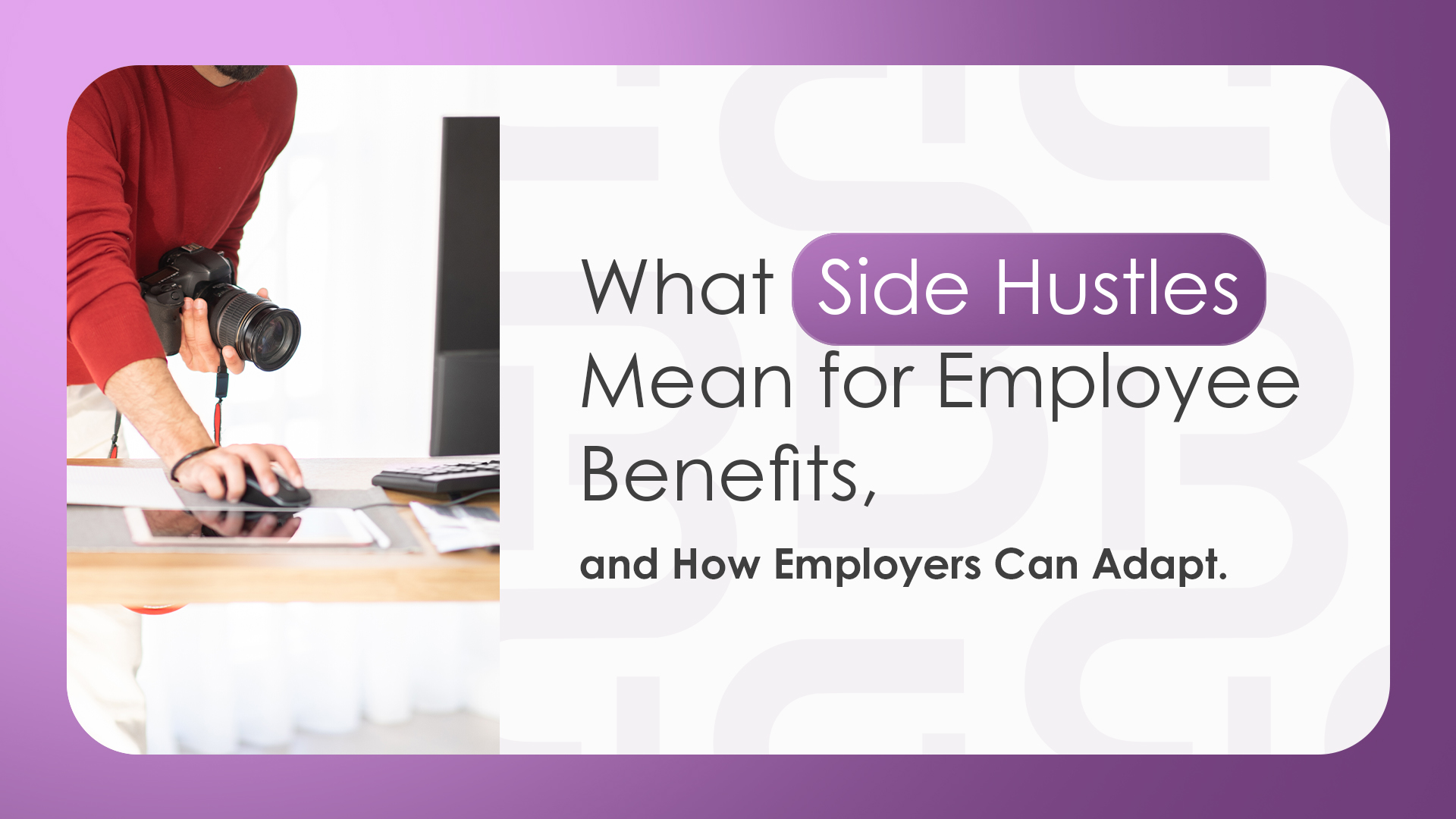Key summary: Side hustles are increasingly common among Canadian employees as a financial safety net. Employers can respond by updating benefits and policies to support financial wellbeing, flexibility, and skill development in today’s multi-income workforce.
Introduction
Side hustles are no longer just about passion projects or entrepreneurial dreams. For many Canadians, they’ve become a financial safety net. A 2024 survey by H&R Block Canada revealed that nearly half of Canadians (47%) have a side hustle or are actively pursuing one, primarily to offset rising living costs and build financial security. This shift has major implications for employee benefits strategies in Canada, especially in a workforce that increasingly values flexibility, autonomy, and financial wellbeing.
The Rise of the Side Hustle as a Safety Net
Side hustles have long existed, but their role has evolved. Today, Canadian employees are using them not just to chase personal interests, but to:
- Combat inflation and high cost of living
- Build emergency savings
- Diversify income sources
- Prepare for potential job disruption
These motivations are rooted in financial resilience, something traditional employee benefits weren’t necessarily designed to address directly.
What This Means for Employers and HR Teams
As an employee benefits consultancy, Benchmark Benefits is seeing firsthand how this shift is reshaping workplace expectations. Here’s what it means for Canadian employers:
- Traditional Benefits May Not Feel Sufficient
If employees are seeking external income sources, it could be a sign that current benefit offerings aren’t fully supporting their financial wellbeing. Employers may need to assess:
- Are group benefits plans offering the right mix of health, dental, and wellness supports?
- Could voluntary benefits, like financial counselling or critical illness insurance, add more value?
- Side Hustles as a Source of Skill Development
Rather than viewing side gigs as a threat, progressive employers are starting to see them as professional development opportunities. Skills learned in side hustles—such as project management, client relations, and digital marketing, often translate into stronger performance in the workplace.
- Time for a Clear Side Hustle Policy
To maintain transparency and avoid conflicts of interest, it’s smart to have a formal side hustle policy. This could outline:
- Disclosure expectations
- Guidelines around intellectual property or client competition
- Performance standards that must be upheld
- Greater Flexibility is No Longer a Perk, It’s Expected!
Flexible work hours, remote days, and results-based performance models give employees the breathing room to manage personal projects without sacrificing their primary job. This can be a major retention driver.
- Portable or Supplemental Benefits Could Play a Role
As more workers take on multiple income streams, portable or “a la carte” benefits models may gain traction. These could include:
- Benefits that aren’t tied solely to full-time status
- Health spending accounts (HSAs)
- Optional insurance products that can travel with the employee
Final Thoughts: Future-Proofing Benefits for a Changing Workforce
When employees rely on side hustles as financial safety nets, traditional benefits may fall short. Benefit performance improves only when plans support what today’s workforce truly needs: financial wellbeing, flexibility, and opportunities for growth both inside and outside the workplace.
Employers who recognize and adapt to the realities of multi-income workforces will be best positioned to deliver benefits that serve both people and performance.
At Benchmark Benefits, we design employee benefit solutions that reflect how Canadians work today, not how the workplace looked five years ago. Whether you’re revising your benefits strategy, crafting side hustle policies, or seeking data-backed guidance, our consultants are here to help.
Looking to future-proof your benefits for a workforce balancing multiple income streams? Let’s build a plan that supports your people and your business. Contact Benchmark Benefits today.




